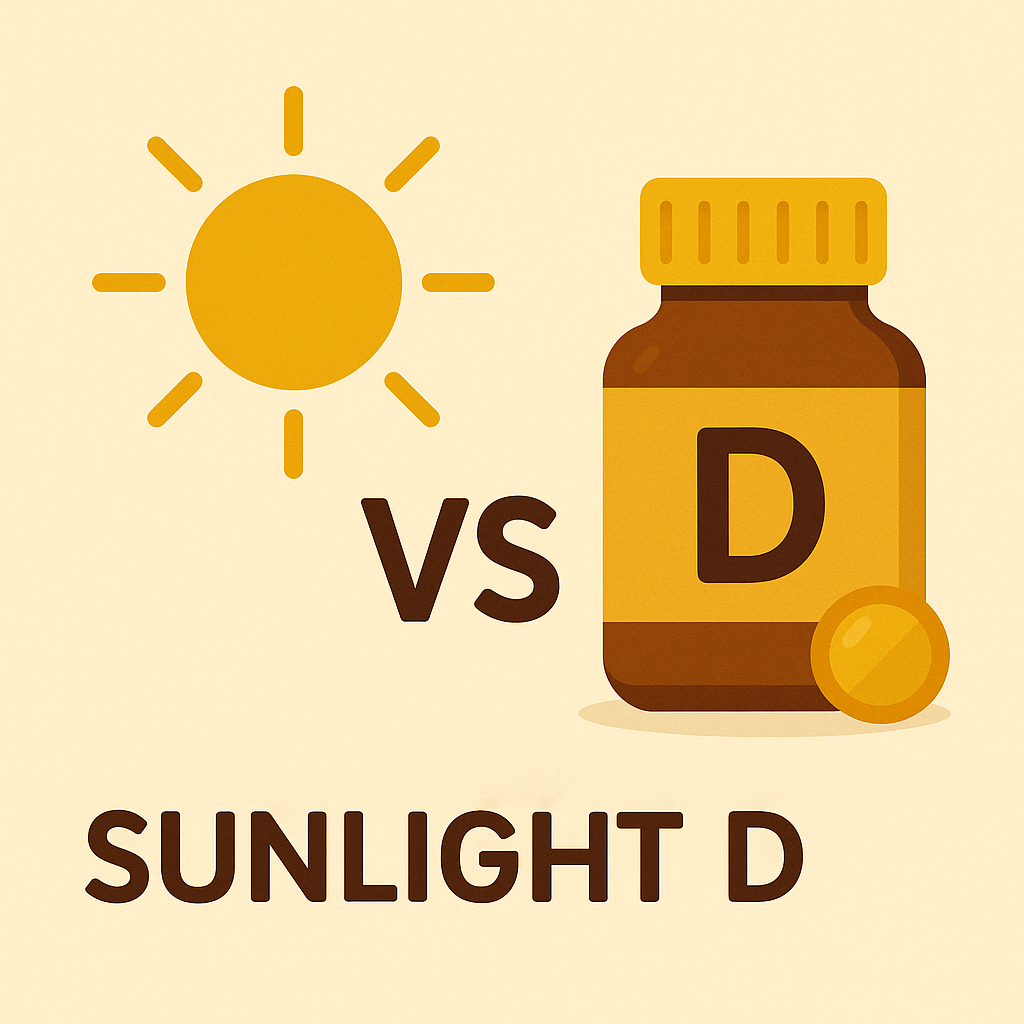
Why Vitamin D Supplements May Be Better Than Sunlight: A Science-Based Perspective
Share
When it comes to vitamin D, most people think of sunlight. After all, the "sunshine vitamin" is synthesized by the skin when exposed to UVB rays. But is relying on sunlight the most effective or safest method for maintaining healthy vitamin D levels? Recent studies suggest that supplementation may offer a more reliable, controlled, and safe alternative.
🌞 The Limitations of Sunlight Exposure
Sunlight exposure can vary greatly depending on location, season, skin pigmentation, and lifestyle. For example, individuals living in northern latitudes or those with darker skin may need significantly more sun exposure to produce the same amount of vitamin D as others. A study published in the Journal of Clinical Endocrinology & Metabolism found that even with outdoor activities, many people failed to maintain optimal 25(OH)D levels during the winter months (Holick et al., 2011).
Moreover, concerns about skin cancer risk lead many people to use sunscreen, which can block up to 95–99% of vitamin D production in the skin (Norval & Wulf, 2009). Balancing sun exposure with skin safety becomes a tricky equation—one that often results in deficiency.
💊 Why Supplementation Is Safer and More Effective
Oral vitamin D supplements offer a consistent and safe method to maintain adequate serum levels. A 2020 meta-analysis in The Lancet Diabetes & Endocrinology confirmed that vitamin D supplementation effectively increases blood concentrations and reduces the risk of deficiency-related conditions, such as osteoporosis and immune dysfunction (Beveridge et al., 2020).
Supplements are also beneficial for individuals with conditions that impair absorption of sunlight, such as obesity, older age, or chronic illnesses. For those groups, dietary intake or supplementation is not just preferable—it’s essential.
🧬 Bioavailability and Dosage Control
Another major advantage of supplementation is dosage control. With sunlight, the amount of vitamin D your body produces can be unpredictable. But with supplements, you can easily tailor your intake to meet individual needs, as guided by a healthcare provider. This precision helps prevent both deficiency and toxicity.
🧠 Beyond Bones: Immune and Cognitive Support
Vitamin D does more than just support bone health. It plays a critical role in immune function, inflammation regulation, and even mood and brain health. The COVID-19 pandemic reignited interest in vitamin D supplementation due to its potential protective role in respiratory infections (Martineau et al., 2017). These benefits are most consistently achieved with regular supplementation rather than relying solely on the sun.
✅ Conclusion
While sunlight is a natural source of vitamin D, it comes with limitations and risks. Supplementation provides a reliable, safe, and effective method to support overall health—especially for those at higher risk of deficiency.
Choose smart, choose safe—choose supplementation.
📚 References
-
Holick MF et al. (2011). Evaluation, Treatment, and Prevention of Vitamin D Deficiency: An Endocrine Society Clinical Practice Guideline. Journal of Clinical Endocrinology & Metabolism.
-
Norval M, Wulf HC. (2009). Does chronic sunscreen use reduce vitamin D production to insufficient levels? British Journal of Dermatology.
-
Beveridge LA et al. (2020). Effect of vitamin D supplementation on multiple health outcomes: systematic review and meta-analysis. The Lancet Diabetes & Endocrinology.
-
Martineau AR et al. (2017). Vitamin D supplementation to prevent acute respiratory tract infections: systematic review and meta-analysis of individual participant data. BMJ.
